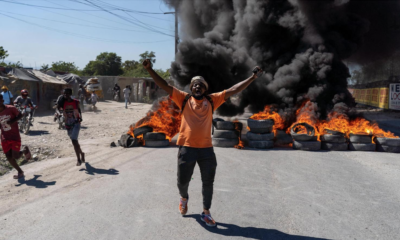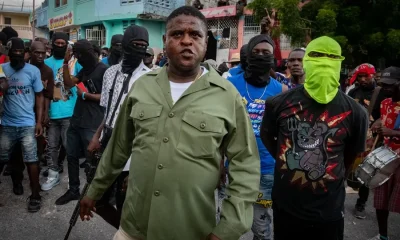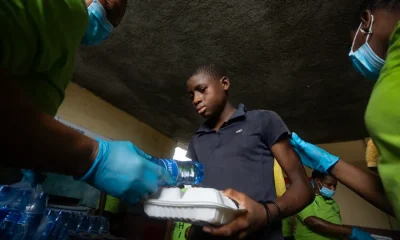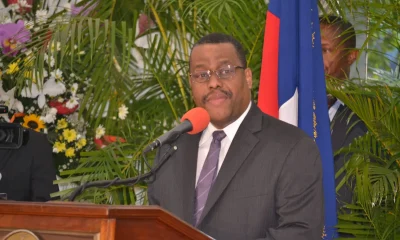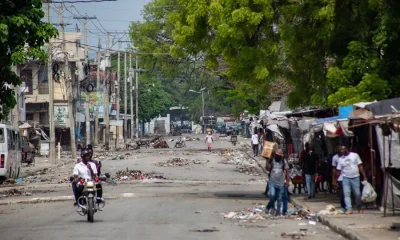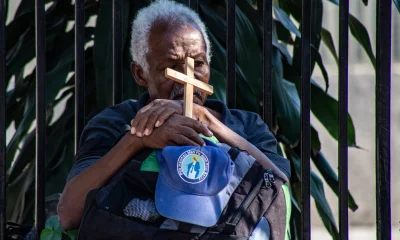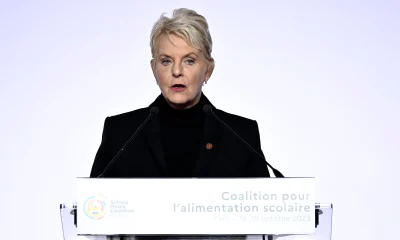International
Haiti, in a deadlock, waiting for a transitional government
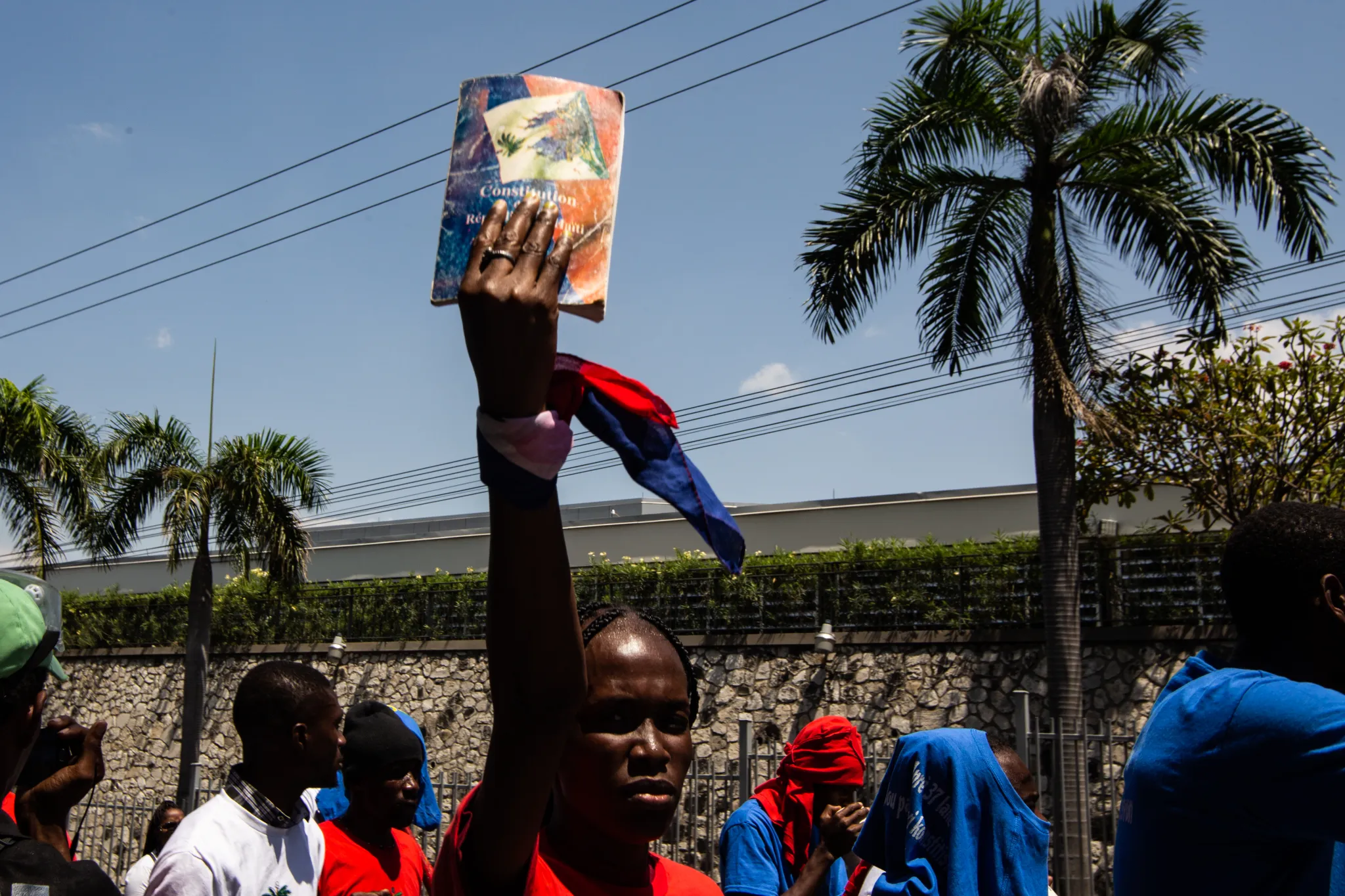
The situation in Haiti remains at a standstill, a month after the escalation of chaos and violence began and the council that must lead the transition in the country, where elections have not been held for almost eight years, has not yet been established.
For a month, the impoverished Caribbean nation has been experiencing an escalation of violence at the hands of the armed gangs, who joined forces to demand the resignation of the Prime Minister, Ariel Henry, and who on March 2, in the midst of chaos and horror, attacked two of the main prisons, from which about 3,600 inmats would have fled, many of them bandits known for their extreme cruelty.
The seriousness of the events, which have forced the closure of schools, hospitals and airports, led the authorities to declare the curfew in the department of the West, where the country’s capital, Port-au-Prince, is located, and where a state of emergency has also been in force since then.
All this happened in the absence of Henry, who was then visiting Kenya to agree to send the multinational security support mission that Haiti awaits and whose deployment is also paralyzed.
Ariel Henry, who took office in June 2021 after the assassination of President Jovenel Moise, has not been able to return to his country and is currently in the United States after several days stranded in Puerto Rico, from where on March 12 he agreed to resign to give way to a transitional government in Haiti, where elections have not been held since November 2017 when the failed ruler was elected.
However, three weeks after its formation was reported, the Presidential Council, in charge of carrying out the transition, still does not carry out its official inauguration, which, as agreed, will be followed by the appointment of a prime minister, with whom it will form a Government of National Unity.
Once this institution is implemented, Henry will leave power in the impoverished nation whose situation, according to the UN, is a “cataclysm” with more than 1,500 deaths at the hands of armed groups so far this year.
In its first communication, issued this week, the council promised stability and return the country to the path of democratic legitimacy and dignity.
Although the situation is stagnant, violent acts continue to be reported, although to a lesser extent than at the beginning of the month, while countries continue to evacuate their citizens.
Precisely this same Sunday, local media reported shots when a French Navy helicopter evacuated citizens of the European nation, although no one was injured.
Likewise, it was reported that two men were lynched by a mob that took them out of a police detachment, which had previously arrested them when they were supposed to buy weapons for the gangs.
The events occurred in the town of Mirebalais and, according to the Police, the two men had with them the equivalent of more than 50,000 dollars, which were presumed to buy weapons and ammunition.
The dead were identified as Alexandre Ananel, a police officer; and Musca Michelet, a security officer of the Provisional Electoral Council.
Meanwhile, one of the latest kidnappings that is known is that of the American YouTuber of Lebanese origin Addison Pierre Maalouf, who, according to several reports, traveled to Haiti to interview the powerful leader of armed gangs in Haiti Jimmy Chérizier, alias Barbecue.
After several days kidnapped, the man was released on Saturday, as he himself announced on social media.
All this happens in a country with an economy that continues to plummet after the contraction of GDP last year, of 1.8% compared to 1.7% in 2022, and in which 5.5 million people, half of its population, need humanitarian aid.
International
U.S. Senate Rejects Budget, Bringing Government Closer to Shutdown Amid DHS Dispute

The U.S. Senate voted on Thursday against a budget proposal in a move aimed at pressuring changes at the Department of Homeland Security (DHS), following the killing of two civilians during a deployment of immigration agents in Minneapolis.
All Senate Democrats and seven Republican lawmakers voted against the bill, which requires 60 votes to advance, pushing the country closer to a partial government shutdown that would cut funding for several agencies, including the Pentagon and the Department of Health.
The rejection came as Senate leaders and the White House continue negotiations on a separate funding package for DHS that would allow reforms to the agency. Proposed measures include banning Immigration and Customs Enforcement (ICE) agents from wearing face coverings and requiring them to use body-worn cameras during operations.
The vote took place just hours after President Donald Trump said he was “close” to reaching an agreement with Democrats and did not believe the federal government would face another shutdown, following last year’s record stoppage.
“I don’t think the Democrats want a shutdown either, so we’ll work in a bipartisan way to avoid it. Hopefully, there will be no government shutdown. We’re working on that right now,” Trump said during a Cabinet meeting at the White House.
International
Trump Says Putin Agreed to One-Week Halt in Attacks on Ukraine Amid Extreme Cold

U.S. President Donald Trump said on Thursday that he secured a commitment from Russian President Vladimir Putinto halt attacks against Ukraine for one week, citing extreme weather conditions affecting the region.
“Because of the extreme cold (…) I personally asked Putin not to attack Kyiv or other cities and towns for a week. And he agreed. He was very pleasant,” Trump said during a Cabinet meeting broadcast by the White House.
Trump acknowledged that several advisers had questioned the decision to make the call.
“A lot of people told me not to waste the call because they wouldn’t agree. And he accepted. And we’re very happy they did, because they don’t need missiles hitting their towns and cities,” the president said.
According to Trump, Ukrainian authorities reacted with surprise to the announcement but welcomed the possibility of a temporary ceasefire.
“It’s extraordinarily cold, record cold (…) They say they’ve never experienced cold like this,” he added.
Ukrainian President Volodymyr Zelensky later commented on the announcement, expressing hope that the agreement would be honored.
International
Storm Kristin Kills Five in Portugal, Leaves Nearly 500,000 Without Power

Storm Kristin, which battered Portugal with heavy rain and strong winds early Wednesday, has left at least five people dead, while nearly half a million residents remained without electricity as of Thursday, according to updated figures from authorities.
The revised death toll was confirmed to AFP by a spokesperson for the National Emergency and Civil Protection Authority (ANPEC). On Wednesday, the agency had reported four fatalities.
Meanwhile, E-Redes, the country’s electricity distribution network operator, said that around 450,000 customers were still without power, particularly in central Portugal.
Emergency services responded to approximately 1,500 incidents between midnight and 8:00 a.m. local time on Wednesday, as the storm caused widespread disruptions.
The Portuguese government described Kristin as an “extreme weather event” that inflicted significant damage across several regions of the country. At the height of the storm, as many as 850,000 households and institutions lost electricity during the early hours of Wednesday.
Several municipalities ordered the closure of schools, many of which remained shut on Thursday due to ongoing adverse conditions.
Ricardo Costa, regional deputy commander of the Leiria Fire Brigade, said residents continue to seek assistance as rainfall persists.
“Even though the rain is not extremely intense, it is causing extensive damage to homes,” he noted.
In Figueira da Foz, a coastal city in central Portugal, strong winds toppled a giant Ferris wheel, underscoring the severity of the storm.
-

 Central America4 days ago
Central America4 days agoGuatemala Police Arrest Prison Guard Caught in the Act of Extortion
-

 Central America4 days ago
Central America4 days agoHonduras swears in conservative president Asfura after disputed election
-

 Central America4 days ago
Central America4 days agoBukele leads public trust rankings as UCA survey highlights gains in security
-

 International3 days ago
International3 days agoFootball Fan Killed in Clashes After Colombian League Match
-

 International4 days ago
International4 days agoDoomsday clock moves to 85 seconds before midnight amid rising global risks
-

 Central America3 days ago
Central America3 days agoGuatemala President Says Starlink Terminal Found Inside Prison
-

 International2 days ago
International2 days agoU.S. Senate Rejects Budget, Bringing Government Closer to Shutdown Amid DHS Dispute
-

 International4 days ago
International4 days agoWinter Storm Fern Leaves 30 Dead and Over One Million Without Power Across the U.S.
-

 Sin categoría4 days ago
Sin categoría4 days agoEight Killed in Series of Armed Attacks in Ecuador’s Manabí Province
-

 International4 days ago
International4 days agoSpain approves plan to regularize up to 500,000 migrants in Historic Shift
-

 International3 days ago
International3 days agoMissing Spanish Sailor Rescued After 11 Days Adrift in Mediterranean
-

 International3 days ago
International3 days agoRubio Says U.S. Could Participate in Follow-Up Russia-Ukraine Talks
-

 Sin categoría4 days ago
Sin categoría4 days agoEl Salvador Launches Fourth Year of Ocean Mission to Protect Marine Ecosystems
-

 Central America24 hours ago
Central America24 hours agoPanama Supreme Court Strikes Down Panama Ports Concession as Unconstitutional
-

 International2 days ago
International2 days agoStorm Kristin Kills Five in Portugal, Leaves Nearly 500,000 Without Power
-

 Central America24 hours ago
Central America24 hours agoU.S. and Guatemala Sign Trade Deal Granting Zero Tariffs to Most Exports
-

 International2 days ago
International2 days agoMan Arrested After Vehicle Crashes Into Jewish Institution in Brooklyn
-

 International2 days ago
International2 days agoTrump Says Putin Agreed to One-Week Halt in Attacks on Ukraine Amid Extreme Cold

























